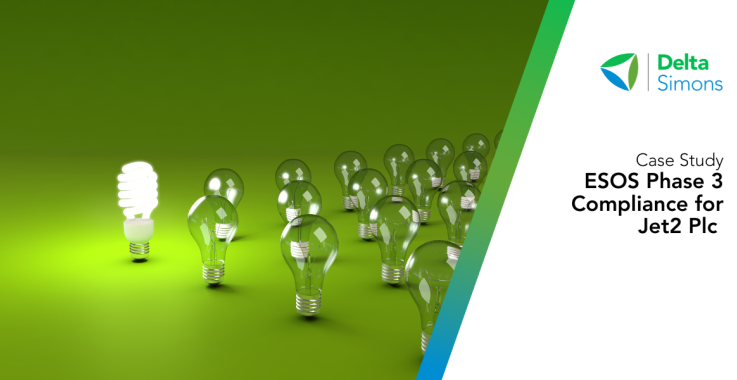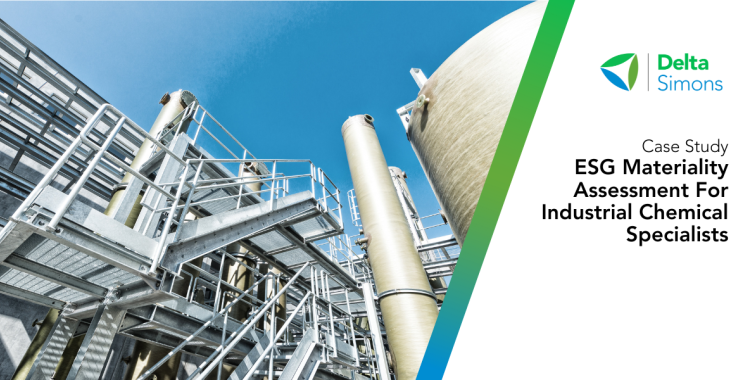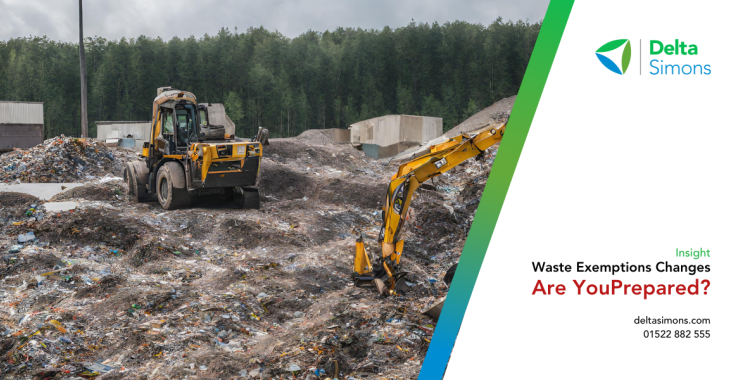Energy & Sustainability
Energy & Sustainability Consultants
In the UK legislation for significant reductions in greenhouse gases combined with the need for a secure energy supply is the challenge faced by government and business alike.
For businesses fluctuating energy costs are a significant threat to operational profitability and business performance.
Services we offer
Energy Audits
By understanding how energy is consumed within your business, you can identify significant financial savings and increase company profitability. Every energy audit we conduct is bespoke to you – we take the time to understand how your business operates in detail, and ensure all recommendations are practical and cost-effective.
Delta-Simons can work with your company to identify:
- Where and when energy is being used
- Unnecessary out-of-hours energy consumption
- Energy performance benchmarks and reduction targets
- Zero cost energy efficiency opportunities
- Capital cost energy efficiency projects with simple payback periods and/or life cycle analysis.
- Suitable renewable energy technologies
- Grant funding and renewable energy tariffs
- Subsequent carbon emissions savings
Energy Savings Opportunity Scheme (ESOS)
The Energy Saving Opportunity Scheme is a non-voluntary reporting requirement that requires qualifying organisations to identify potential energy efficiency measures.
ESOS Phase 3 Compliance
The deadline for ESOS Phase 3 is December 5th 2023, however, it is strongly advised that preparations are made as early as possible to avoid potential penalties for late submission or non-compliance. As the deadline for submission approaches the demand for audits is fast approaching, the number of available auditors will decrease making it a challenge for companies to meet the closing date for reports.
What are the regulations?
Under ESOS regulations qualifying companies are required to undertake an Energy Audit every four years and if they meet the following eligibility criteria:
- All large undertakings with greater than 250 UK employees;
- and/or a business with greater than €50m annual turnover (£44.1m) OR with an annual balance sheet over €43m (£37.9);
- Subsidiaries of larger parent groups, which meet the above eligibility criteria.
Key changes to Phase 3
- Previously companies had been required to report 90% of their energy consumption with an allowance made for De Minimis consumption.
- The Phase 3 requirement allows for a 5% De Minimis and requires an audit of 95% of total energy consumption.
Delta-Simons have delivered ESOS energy audits for clients across a range of sectors, including offices, retail, hospitality, construction, offshore drilling and manufacturing, identifying thousands of pounds in energy savings.
What are the benefits of Energy Reporting and Audits?
Conducting a thorough ESOS assessment not only allows an organisation to reduce their energy spend and lower their carbon emissions. The ESOS assessment also encourages workforce engagement and helps companies to avoid financial penalties.
How to comply with ESOS regulations
- Carry out an ESOS Energy Audit;
- Compete ISO 50001 Certification;
- Display Energy Certificates;
- Conduct a Green Deal Assessment.
How can we help?
Our team can can support in complying with ESOS regulations through the delivery of compliance plan workshops, which will establish full client responsibilities. In instances where multiple options exist, we will work closely with organisations to agree a preferred approach and methodology.
Our dedicated consultants are well placed to conduct a gap analysis which reviews both current and historic consumption data and provides an assessment of your collection processes. The work will involve the delivery of BS EN 16247-2 compliant building energy audits and the submission of a ESOS Compliance Report.
Streamlined Energy & Carbon Reporting (SECR)
From April 2019, the UK Government introduced legislation intended to simplify and streamline various existing annual carbon reporting and accounting requirements for quoted businesses, large companies and large LLPs in the UK.
Delta-Simons can support throughout SECR by delivering:
- Scoping Consultation – Help you to understand how SECR regulations apply to your organisation and set a clear and robust methodology and approach to compliance.
- Gap Analysis – Review your current data collection and reporting processes, and review against the needs of SECR.
- Data Review & Validation – Review your data at various stages throughout the year to ensure ease of final SECR reporting.
- Energy Audits – Conduct energy audits to help identify suitable and meaningful opportunities for energy saving measures within your business.
- GHG and SECR Reporting – Calculate total energy consumption and carbon emissions, along with other reporting metrics, for final SECR reporting on completion of your accounting period.
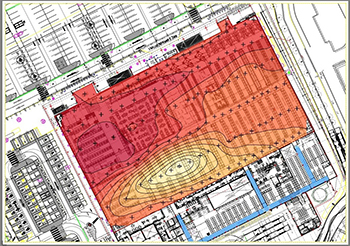 Environmental Monitoring
Environmental Monitoring
Delta-Simons have vast experience of developing bespoke environmental monitoring programmes to investigate how and where energy is being wasted in buildings.
Many buildings are over-specified and consume more energy than they were designed to. By assessing environmental conditions holistically and in conjunction with energy data, facilities managers can fine tune their buildings to improve energy efficiency, whilst also improving the comfort and wellbeing of occupants.
Delta-Simons environmental monitoring consists of:
- Indoor Air Quality
- Air Velocity
- Air Temperature
- Surface Temperatures
- Lighting Levels
Energy Performance Certificates (EPC)
Energy Performance Certificates (EPCs) are required whenever a property is sold, rented or newly built. An EPC rates the energy efficiency of the building, from A (most efficient) to G (least efficient). It also includes recommendations of how to reduce energy consumption within a building.
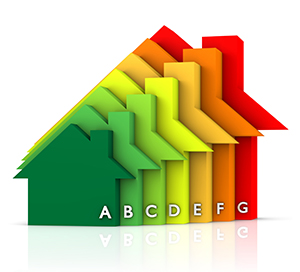 From April 2018, rental properties will be required to achieve minimum energy efficiency targets. Landlords will not be able to legally let a non-domestic property with an EPC Rating of less than ‘E’. This relates to new tenancies and renewals. However, from April 2023, this will extend to all existing tenancies; with F&G rated buildings essentially phased out of the British rental property market.
From April 2018, rental properties will be required to achieve minimum energy efficiency targets. Landlords will not be able to legally let a non-domestic property with an EPC Rating of less than ‘E’. This relates to new tenancies and renewals. However, from April 2023, this will extend to all existing tenancies; with F&G rated buildings essentially phased out of the British rental property market.
Delta-Simons can provide cost-effective EPCs for the non-domestic sector, for property transactions and/or new lease agreements. In addition, Delta-Simons can also assess the implications for individual assessments or entire portfolios to reduce risk.
Simplified Building Energy Model (SBEM)
All new non-domestic buildings must comply with Building Regulations Part L2A, and demonstrate achievement of minimum energy and carbon performance targets.
The Simplified Building Energy Model (SBEM) is an approved method for undertaking compliance assessment for Part L2A. SBEM models a building’s energy consumption based on its geographical location, scale, shape, orientation, materials, construction, fuel sources, building services and controls.
Delta-Simons can work with your design team to produce cost-effective SBEM calculations for your new build or refurbishment project.
Energy Efficiency Reports for Acquisitions
Supporting Mergers & Acquisitions by reporting on energy efficiency prior to asset purchase. Our review of operational demand will often involve:
- Utilising the Building Better Partnership Framework to provide commentary and evidence relating to building services and energy demand.
- Assessing potential for liabilities relating to energy management prior to investment decisions and Site purchase.
- Conducting a review of recent EPCs.
- Carrying out a benchmark assessment against best practice and industry guidance.

